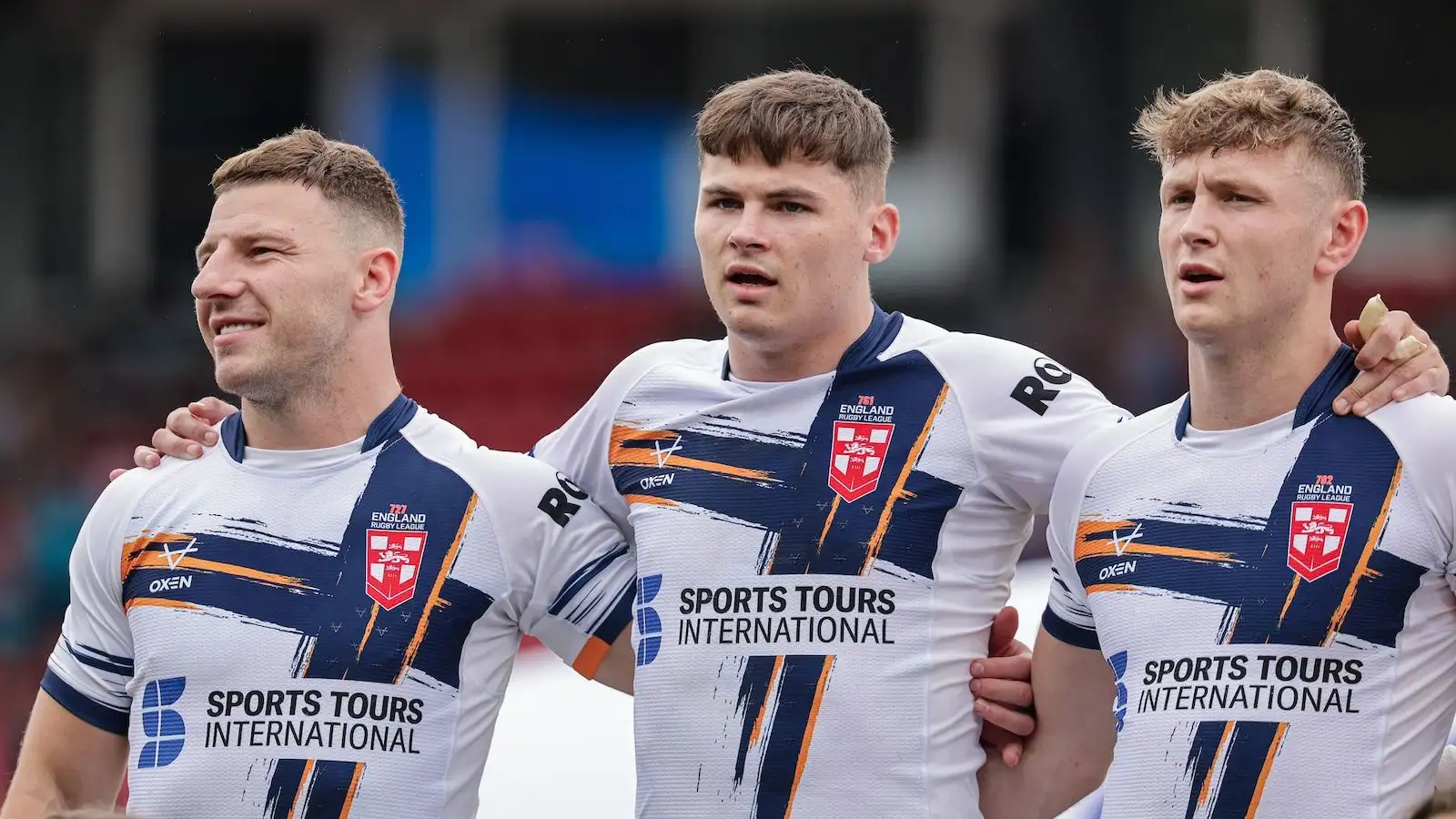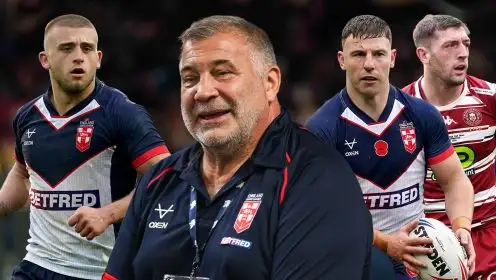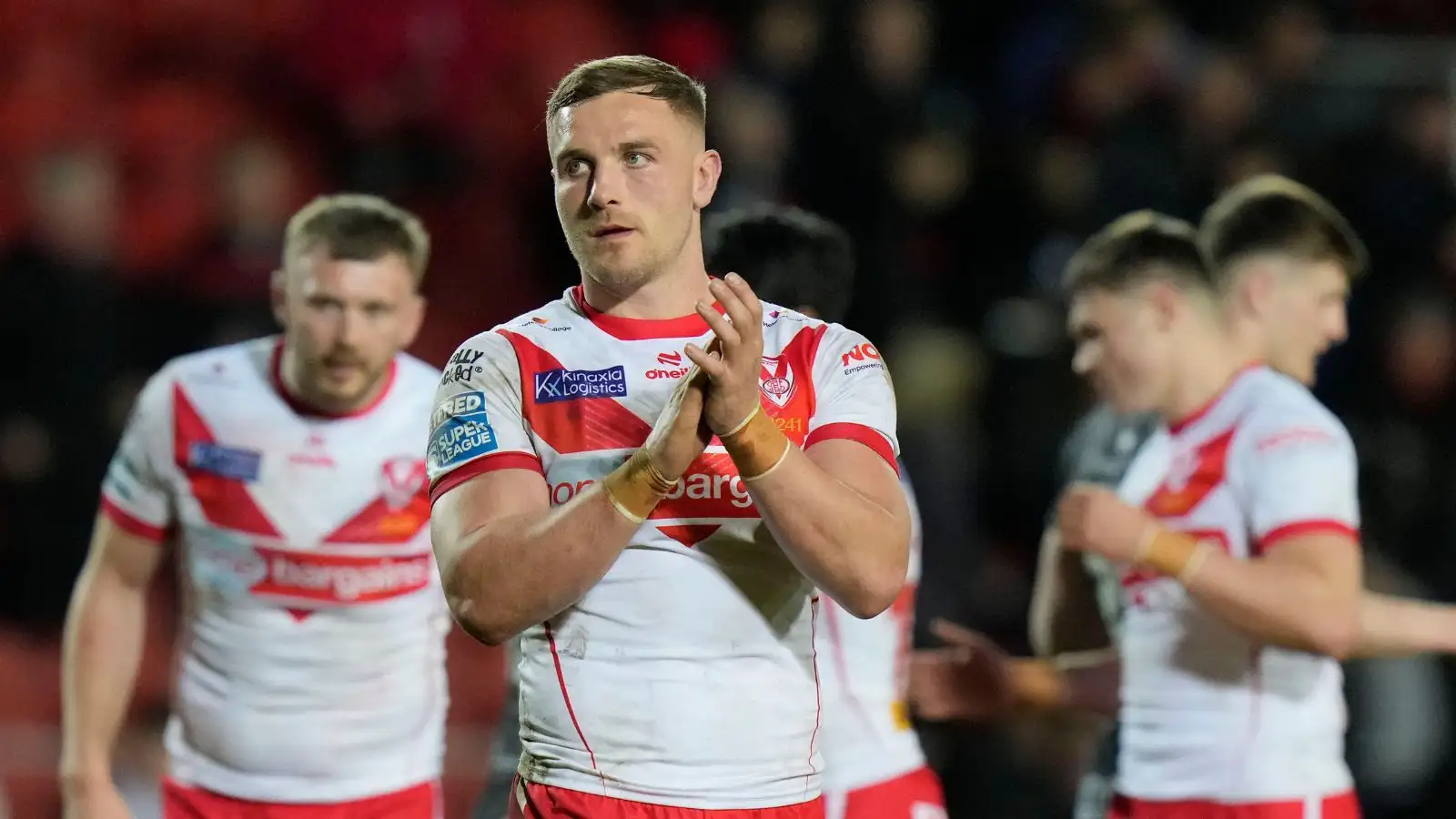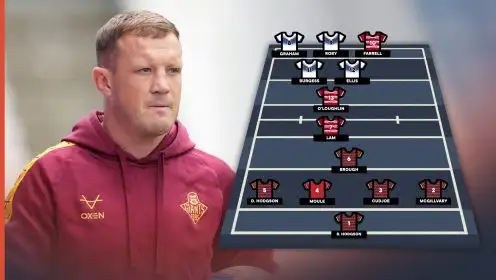A Five Nations, smaller Super League calendar: our plan to save international rugby league

International rugby league is, to put it mildly, in a horrendous state of affairs. This is a situation that was emphasised more than ever at the weekend with an underwhelming Test match between England and France.
But when the international game is essentially an afterthought, is it any surprise? For too long, the game has shouted how it needs to put international rugby league first and then simply moved on without so much as a serious debate.
Love Rugby League has, therefore, attempted to put forward a plan which could begin to encourage shoots of growth on this side of the world. It will require buy-in from all stakeholders, and doesn’t need Australia, New Zealand or nations on the other side of the world to get involved.
But in time, it could help establish the international game in a way never seen before. This is our five-point plan.
1. Congest the Super League calendar
The first, and most obvious, point is for IMG, the Rugby Football League or whomever has pulling power over the clubs to thrash out a revised domestic schedule – with fewer games at the heart of it.
Fewer games means fewer opportunities for home fixtures and to generate revenue, which will inevitably get push-back from clubs: many of whom expect revenue to be handed to them on a plate. But there are ways to counter this and, if done properly, clubs could only lose one home fixture – which is explained in more detail below.
There would also be adequate opportunities to recoup any losses from those games.
2. Allocate a month in the summer
With two fewer fixtures and the season starting one week earlier, you automatically have a four-week window – when you add in the existing one-week international break mid-season – free to allocate to the international game.
There’s countless things you can do with this: camps, ad-hoc fixtures or, preferably, a structured and thought-out plan revolving around tournaments and long-term growth. If there are Super League fixtures that need to be rearranged, it’s entirely possible they could be played in this window: but with international players unavailable.
Suddenly, there is a window to do something significant in June or July: and it wouldn’t end there.
READ NEXT: Every Super League club’s signing of the season (so far): Luke Thompson, Matt Moylan..
3. Select the England squad from Super League Origin
Earlier on in the year, potentially around Easter, you reintroduce representative rugby league at a much earlier stage in the season with something many believe there would be an appetite for: a Super League-style Origin match between Yorkshire and Lancashire.
You don’t have to call it Origin: you can establish its own identity. But the match takes on significance because there is one key catch: the England squad for the summer is picked solely from players who are featuring in the Origin match. Of course, there are exemptions for players like Mike McMeeken, who are not from either of the two areas represented.
But with players knowing they have to be in strong early-season form to be in England contention later in the year, it ramps up the significance of everything.
This doesn’t need to be a free weekend: you can have a round of Super League fixtures on the same weekend and if needs be, cap the number of call-ups from each clubs. It’s highly unlikely any leading club would be decimated by England selection; Wigan had four players on duty against France on Saturday and would have still fielded a strong side, for example.
READ NEXT: Phil Gould reiterates belief NRL should purchase Super League, suggests club appetite for deal
4. Introduce a Five Nations: and be patient
This is where things get serious. You have a four-week window to put international rugby league on the map: so take it, but be prepared to be patient with the launch of a brand-new European Five Nations tournament. England, France, Scotland, Wales and Ireland.
Yes, England would win the first few tournaments in all eventuality. But that’s okay. Growth takes time. Italy were added to rugby union’s Six Nations in 2000 and it took them years to move away from being routinely beaten by heavy margins. But union persisted, and now they have a pay-off, with Italy a thriving nation.
Every nation gets two home games, and plays two away from home. Would the crowds be small in places like Wales and Ireland initially? Probably. But that’s because there’s been no presence there for years. Once you know your nation are regularly playing two home fixtures every summer, you can begin to build momentum.
There’s even scope to have a second-tier competition with nations including Serbia, Jamaica, Italy, Malta.. there are nations aplenty who would love to be playing rugby league. Jamaica in particular feels like a lost legacy from a World Cup that only happened two years ago.
It’ll be a slow process. But without starting something, you can’t see any growth. Launch it, be patient and believe in it.
IN-DEPTH: England-France was an embarrassment: international rugby league could disappear unless someone acts
5. Encourage players to represent their heritage to boost nation pools
The natural criticism from some quarters is that, simply put, there wouldn’t be the player pools or the calibre of talent available for nations like Scotland and Wales to go at. But there’s a solution.
If players aren’t selected for England in the Five Nations, all is not lost: you encourage them to take up call-ups from other nations they have heritage from to put themselves in the shop window for Shaun Wane later in the year. The international rules allow this, with switches from Tier One to Tier Two nations permitted.
There are dozens of players who could represent nations including Scotland, Wales, Ireland, Jamaica and many others mid-season. Imagine Harry Smith and Morgan Knowles featuring for Wales. Daryl Clark and Jake Wardle for Scotland. Toby King and Josh Thewlis for Ireland.
All of a sudden, those top-level stars provide a marketing point of interest for the other Home Nations. They also potentially inspire take-up at grass roots level throughout the UK. And they have an opportunity to show that, when the end-of-season tours or World Cups take place, they’re capable of playing for England.
Wane could easily lay the law down to someone like Clark: you’ve been overlooked for England due to the form of Danny Walker and Brad O’Neill: but go and play for Scotland and prove to me you’re good enough to feature at the end of the year.
It’s a short-term solution, in an ideal world. When you get a decade or so down the line, the Home Nations have had enough exposure that they’re able to generate a greater number of homegrown talent.
And maybe, with the right time and investment, you can build an international programme that has potential. Nobody is suggesting it would take over the world. But it would at least offer some hope.
READ NEXT: ‘Legitimate challengers’ – Sky Sports pundit makes Salford Red Devils admission



